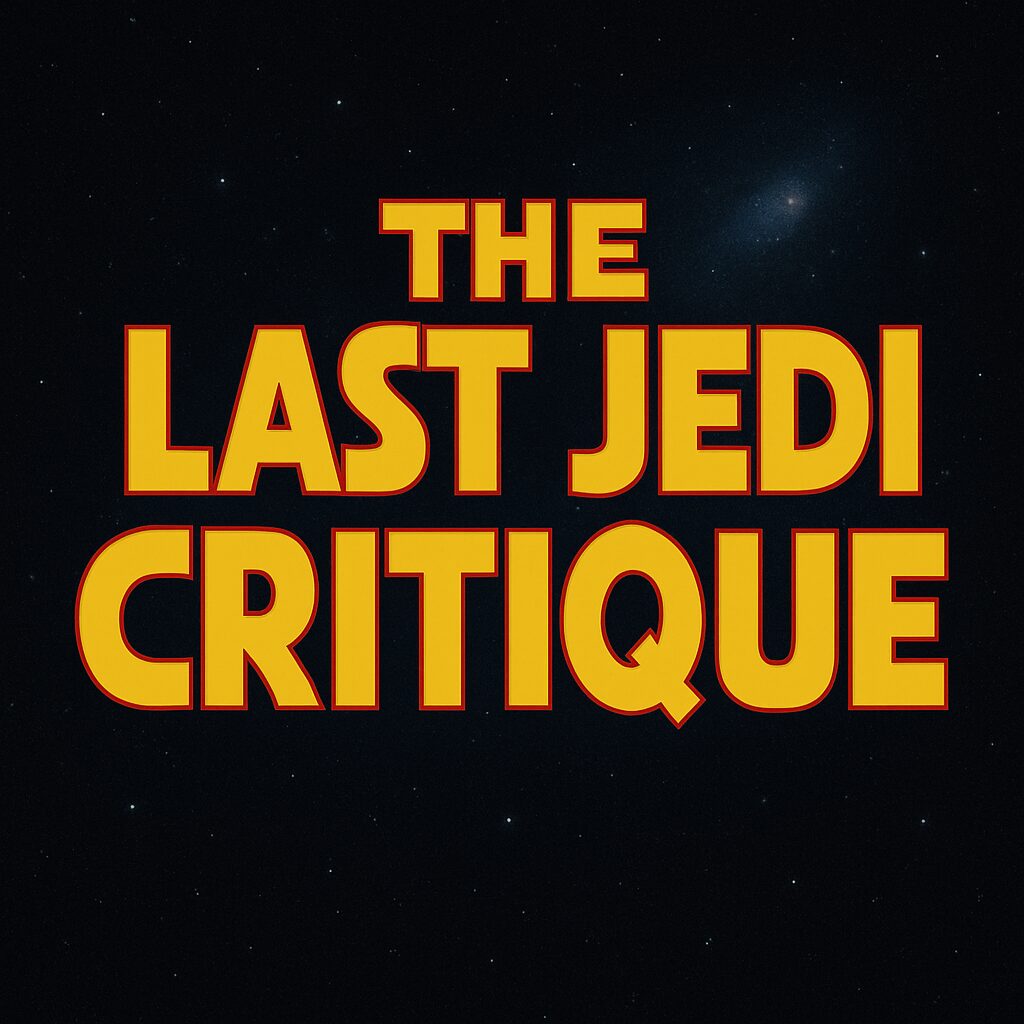“Star Wars: The Last Jedi,” the eighth installment of the saga, sparked fierce debates among fans, particularly regarding the portrayal of Luke Skywalker. While the film achieved box office success, it also generated profound controversy. This article critically examines the gap between the film’s financial success and the divisive reactions it provoked, focusing on director Rian Johnson’s intentions and the broader implications for the Star Wars series. I invite you to join me in this calm and analytical reconsideration.
Contents
Introduction: Exploring the Source of Discomfort
“Star Wars: The Last Jedi” is a highly divisive film. While it can be considered a success in terms of box office performance, many longtime fans of the series voiced strong feelings of discomfort. Much of the confusion centered around the depiction of Luke Skywalker, the former hero of the saga, and his statement, “The Jedi must end,” which became a central theme of the story.
This article seeks to carefully unpack the root of that discomfort by examining Rian Johnson’s intentions and limitations, and the impact “The Last Jedi” had on the larger narrative of the Star Wars universe.
Luke’s Disconnection from the Force and His Character Shift
In Episode VIII, Luke is portrayed as having severed his connection with the Force, living in isolation on a remote island. Overwhelmed by regret after momentarily considering killing his nephew, Ben Solo, Luke abandons everything, culminating in his declaration that “the Jedi must end.”
However, this portrayal of Luke conflicts with the character we previously knew. Luke had once seen the good remaining even in Darth Vader and stood against the Empire and the Sith. How could someone who found hope in Vader succumb so completely to fear over his nephew’s hesitation?
Yet, paradoxically, Luke reconnects with the Force by the film’s climax, sacrificing himself to save the young Resistance fighters and manifesting as a Force ghost. This creates an unresolved contradiction between Luke the Jedi-denier and Luke the symbol of hope. If he had instead said, “The Jedi must evolve” or “The old ways must be transcended,” the thematic continuity would have been much more coherent.
Moreover, Luke’s narrative arc in Episode VIII feels like a smaller, less grand reenactment of Anakin’s fall. Compared to Anakin’s choices, which caused galaxy-wide devastation, Luke’s breakdown seems much more personal and less consequential for the larger story.
Yoda, Obi-Wan, and the Unpassed Lessons
In truth, Luke should have been in a position to learn from Yoda and Obi-Wan’s failures — Anakin’s fall to the Dark Side, the Council’s misjudgments, and the failure to recognize Palpatine’s threat.
After Order 66, both Yoda and Obi-Wan spent decades in exile, reflecting on their mistakes. However, they never clearly imparted these hard-earned lessons to Luke. Instead, they trained him in traditional Jedi teachings, emphasizing detachment without conveying the deeper systemic failures of the old Jedi Order.
This “missing knowledge” — the failure to pass on critical lessons — may have contributed to Luke’s drift into denial and despair. The lack of a narrative reckoning with the Jedi’s past failures casts a long shadow over the entire sequel saga.
Luke in The Mandalorian and The Book of Boba Fett
Conversely, the Luke depicted in “The Mandalorian” Season 2 finale demonstrated overwhelming combat prowess, thrilling longtime fans. Furthermore, in “The Book of Boba Fett” Episode 6, Luke made a realistic decision when he offered Grogu a choice between Jedi training and emotional attachments, suggesting a more mature, pragmatic outlook.
Many fans anticipated that the Luke appearing within this timeline had evolved into a “new kind of Force user,” transcending the flaws of the old Jedi ways. Consequently, the portrayal of a broken, self-denying Luke in “The Last Jedi” was all the more jarring and disappointing.
The Democratization of the Force and the Midichlorian Contradiction
Another key theme “The Last Jedi” attempted to introduce was the democratization of the Force — the idea that the Force is accessible to all, regardless of bloodline or chosen status.
However, if interpreted to mean “anyone can wield the Force with training alone,” it directly contradicts the earlier explanation in Episode I about midichlorians, which suggests that a certain innate sensitivity is essential.
The Force has traditionally been depicted as requiring both innate potential and disciplined training. “The Last Jedi” blurs this balance, contributing to the sense of inconsistency and unease among the fanbase.
Conclusion: Johnson’s Challenge and the Phenomenon of “The Last Jedi”
Rian Johnson undeniably aimed to present a new direction with “The Last Jedi.” His willingness to challenge traditional frameworks deserves recognition, and his ambitions as a filmmaker were clear.
However, the psychological depth supporting the characters’ changes and the thematic linkage to the broader saga were not fully realized. Particularly, Luke’s statement “The Jedi must end” feels poorly handled, causing the narrative to lose clarity.
Furthermore, Johnson has not been involved in subsequent Star Wars films, symbolizing his isolated position within the franchise’s evolving direction.
Despite its lack of thematic novelty and its questionable treatment of legacy characters, “The Last Jedi” achieved significant box office success and ignited widespread debate.
It is precisely this gap — the disconnect between the film’s core and its societal reception — that makes “The Last Jedi” such a fascinating phenomenon to analyze.
For that reason, I strongly encourage a calm and detached rewatch.
